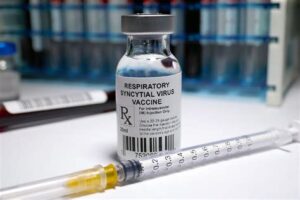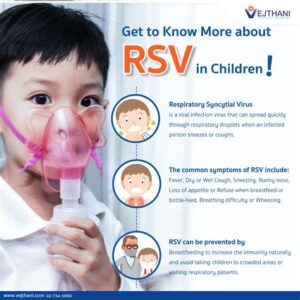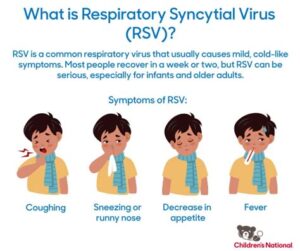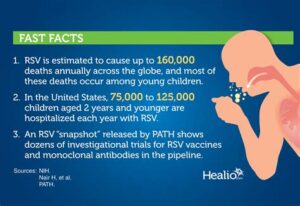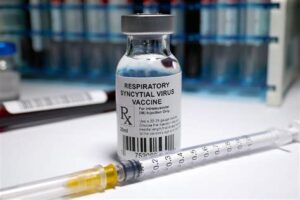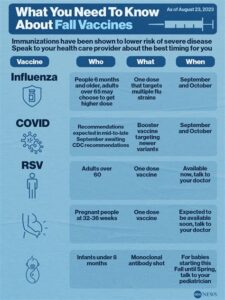Explore the RSV vaccine’s details, comparing it with pneumonia vaccines, its effectiveness, potential side effects, and expert vaccination recommendations. Stay informed on respiratory health!As conversations around respiratory health become increasingly important, many people often find themselves wondering about the distinctions between various vaccines, particularly the RSV and pneumonia vaccines. Both guard against serious respiratory illnesses, yet they serve different purposes and are designed for different pathogens. With respiratory syncytial virus (RSV) affecting predominantly infants and older adults, understanding its vaccine development is crucial. This blog post delves into the nuances of the RSV vaccine, exploring how it differs from pneumonia vaccines, its effectiveness, potential side effects, and current recommendations for vaccination. By clarifying these aspects, we aim to enhance your knowledge and empower you to make informed healthcare decisions for yourself and your loved ones. Let’s embark on this journey to unravel the complexities of RSV and pneumonia vaccinations.
Understanding RSV Vaccine
The RSV vaccine is designed to protect against respiratory syncytial virus (RSV), a common virus that can cause serious respiratory infections, particularly in infants and older adults. RSV is known for causing bronchiolitis and pneumonia, often leading to hospitalization. The importance of the RSV vaccine lies in its ability to prevent these severe outcomes by providing immunity against this specific virus.
While both RSV and pneumonia can affect the respiratory system, they are not the same. Pneumonia can be caused by a variety of pathogens, including bacteria, viruses, and fungi. There are different vaccines available for certain types of pneumonia, primarily aimed at bacterial infections such as those caused by Streptococcus pneumoniae. Therefore, it is crucial to differentiate the RSV vaccine from pneumonia vaccines, as they target different diseases and pathogens.
Current research has led to the development of the RSV vaccine, which is especially important for high-risk populations. It is now seen as a significant step forward in preventing RSV-associated complications. By understanding the differences between the RSV vaccine and vaccines targeting pneumonia, individuals can make informed decisions about their health and vaccination needs.
Differences between RSV and Pneumonia Vaccines
When it comes to respiratory illnesses, many people often wonder about the differences between the RSV vaccine and pneumonia vaccines. Respiratory Syncytial Virus (RSV) and pneumonia are both significant health concerns, but they are caused by different pathogens and thus necessitate different vaccination strategies.
The RSV vaccine is specifically designed to target the Respiratory Syncytial Virus, which primarily affects infants, young children, and elderly adults. In contrast, pneumonia vaccines generally aim to protect against bacterial and viral pathogens leading to pneumonia, such as Streptococcus pneumoniae and certain strains of the influenza virus.
In terms of effectiveness, RSV vaccination has been focused on reducing severe disease in at-risk populations, particularly infants born prematurely or with underlying health conditions. Pneumonia vaccines, on the other hand, have been shown to significantly reduce the incidence of pneumonia in both children and adults. These differences are crucial for understanding what type of vaccination is necessary for specific populations.
In summary, understanding the differences between the RSV vaccine and pneumonia vaccines is vital for effective health management and prevention strategies.
It’s essential to consult with healthcare professionals to determine the appropriate vaccination based on individual health status and risk factors. Each vaccine serves a distinct purpose in combating respiratory illnesses, ensuring that the right protection is available for those in need.
Effectiveness of RSV Vaccine
The effectiveness of the Respiratory Syncytial Virus (RSV) vaccine is a topic of growing interest, especially as respiratory infections become more prevalent in vulnerable populations, including infants and the elderly. Clinical studies have demonstrated that the RSV vaccine significantly reduces the incidence of severe RSV infections and hospitalizations.
According to recent data, the RSV vaccine has shown an effectiveness rate of around 70% to 90%, primarily protecting young children and high-risk groups. This protection is vital as RSV can lead to serious respiratory issues, including bronchiolitis and pneumonia, which often result in hospital admissions.
It’s important to note that while the RSV vaccine is effective, it may not provide complete immunity. Booster doses may be necessary to maintain a high level of protection, and ongoing research continues to evaluate the long-term effectiveness of the vaccine in various populations. The importance of vaccination cannot be ov
Side Effects of RSV Vaccine
The RSV vaccine has been developed to combat respiratory syncytial virus, which is a significant cause of respiratory infections in infants and young children. While this vaccine has shown promising results in safeguarding vulnerable populations, it is important to be aware of the potential side effects that may occur.
- Injection site reactions such as pain, redness, or swelling
- Fever or mild flu-like symptoms
- Fatigue or muscle aches
In most cases, these side effects are mild and resolve on their own after a few days. However, individuals should monitor for any severe reactions.
- Severe allergic reactions, such as anaphylaxis
- Respiratory complications, although these are quite rare
It’s critical to discuss any concerns with a healthcare provider before vaccination. They can provide tailored advice and reassurances about the benefits and potential risks associated with the RSV vaccine, ensuring informed decisions are made.
Recommendations for RSV Vaccination
Respiratory Syncytial Virus (RSV) is a significant cause of respiratory illness in infants and young children. Given the rising concern about non-protective immune responses, it is vital to understand the recommendations for RSV vaccination.
The CDC and AAP (American Academy of Pediatrics) recommend that all infants, especially those at high risk, receive the RSV vaccine during the RSV season. This typically begins in the fall and can extend into the spring, depending on the geography. High-risk infants include those born prematurely, those with congenital heart defects, or compromised immune systems.
An individualized vaccination plan should be developed by healthcare providers, factoring in the infant’s age, health status, and local RSV activity. The vaccine’s timing and dosage are critical to ensure maximum protection against the virus. Parents are also encouraged to keep up with annual updates regarding vaccinations and consult with healthcare professionals regularly.
The best way to protect your child from RSV is through vaccination and by practicing everyday preventive actions. – CDC Guidelines
Frequently Asked Questions
What is the difference between the RSV vaccine and the pneumonia vaccine?
The RSV vaccine is specifically designed to protect against respiratory syncytial virus, which primarily affects infants and young children, while the pneumonia vaccine protects against pneumonia caused by various bacteria and viruses, including Streptococcus pneumoniae.
Who should receive the RSV vaccine?
The RSV vaccine is recommended primarily for infants and young children, particularly those at high risk for severe RSV infection, such as premature infants or those with certain underlying health conditions.
Who is eligible for the pneumonia vaccine?
The pneumonia vaccine is recommended for all adults aged 65 and older, as well as younger children and individuals with certain high-risk health conditions.
Can adults receive the RSV vaccine?
Currently, RSV vaccines are mainly targeted towards infants and young children, with ongoing research for potential adult vaccines, especially for older adults who are at increased risk.
How are the RSV and pneumonia vaccines administered?
Both vaccines are administered via injection, though the specific schedules and number of doses may differ depending on the vaccine type.
Are there any common side effects of the RSV and pneumonia vaccines?
Common side effects for both vaccines may include pain at the injection site, mild fever, and fatigue; serious side effects are rare.
How effective are the RSV and pneumonia vaccines?
The effectiveness varies: the RSV vaccine has shown promise in clinical trials but is still being developed, while pneumonia vaccines are generally effective at preventing severe illness and hospitalization due to pneumonia.
